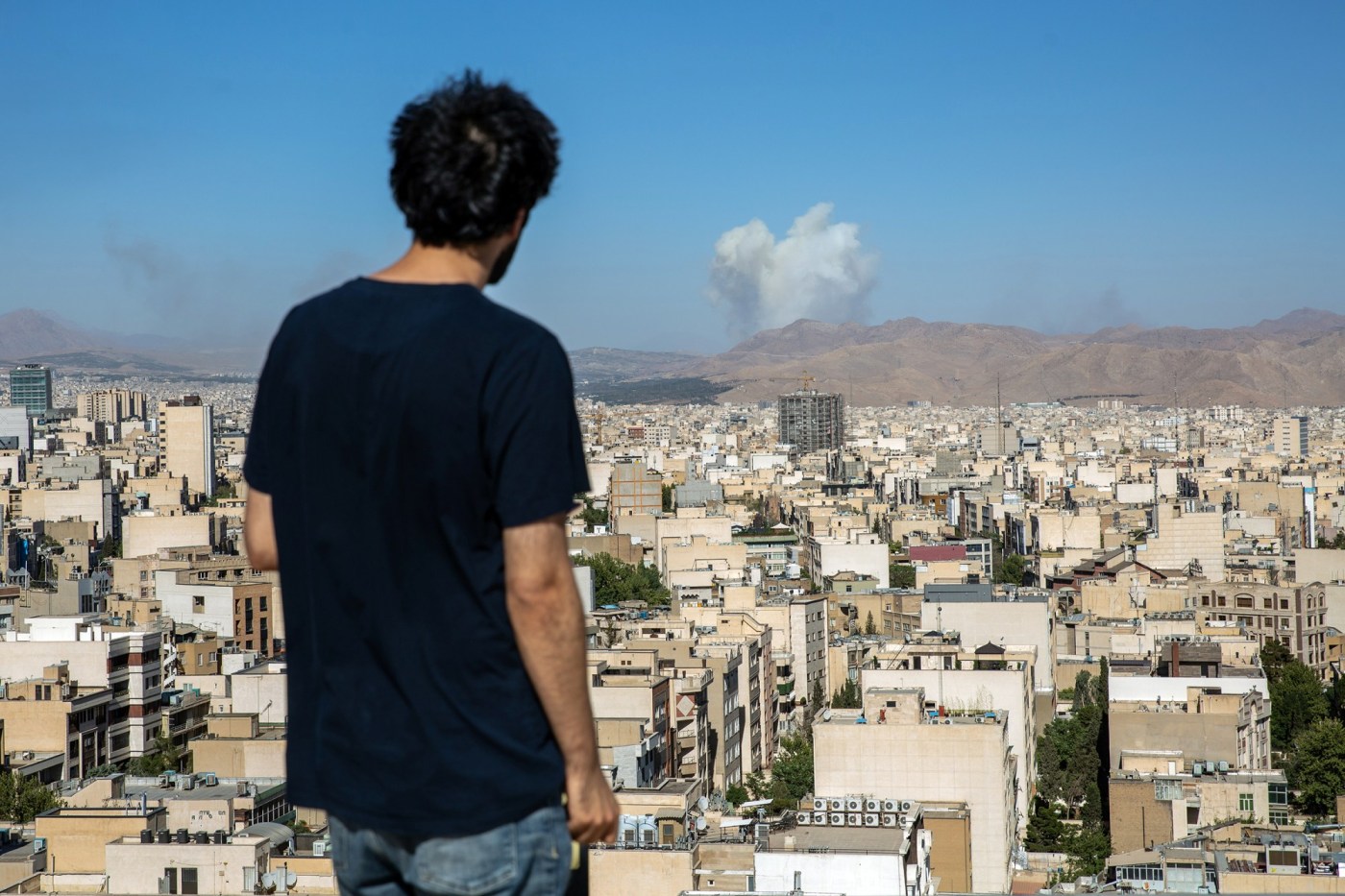It was business as usual on Monday at Mission Ranch Market, a Persian grocery in Mission Viejo, the checkout lines long at the lunch hour with shoppers hauling full carts of produce, sheets of lavash bread folded neatly in the crooks of their arms.
Camouflaged by the routine, many Iranian American shoppers moved through the straight aisles with a tangle of feelings stirred by Saturday’s U.S. airstrike on three nuclear facilities in Iran amid more than a week of missile strikes between Iran and Israel.
On Monday morning, Iran retaliated with missiles launched at the Al Udeid Air Base in Qatar, the largest American military installation in the Middle East, though Iran gave the U.S. advance notice of the attack.
By the afternoon, President Donald Trump announced a complete and total ceasefire between Iran and Israel was pending, adding to the swirl of emotions among Orange County’s Iranian American community.
“I have mixed feelings about the attack,” an Irvine woman said on the condition of anonymity for fear of reprisal against her son and mother, who live in Iran. “I want regime change, but I’m worried about them.”
“We all want regime change, but I don’t feel good at all about what’s happening,” added a woman from Trabuco Canyon who said her name is Zoey. She’s lost contact with her mother in northern Iran due to two days of internet blackouts across the country.
“I’m feeling great about the U.S. attack,” said a third shopper, an expatriate from Tehran. “People are suffering, and this sends a message to Iran.”
Touraj Daryaee, director of the UC Irvine Jordan Center for Persian Studies and Culture, said he expects that most of the 36,000 Iranian Americans in Orange County reacted favorably to Trump’s decision to bomb Iran’s nuclear facilities.
“Orange County, being what it is in terms of its politics, you tend to see more people who are anti-government and willing to see this type of bombing and punishment in hopes of rebuilding the country under a different regime,” Daryaee said.
For an Iranian couple visiting Irvine, however, just returning — nonetheless rebuilding — home is their most immediate concern.
Just days before Israel started its war with Iran on June 12, Reza Arzanian’s parents flew in from the Iranian capital to visit their son and meet their newborn grandson, Kaveh.
“They don’t know if they’re going to have a home to go back to,” Arzanian said.
“I am, in no shape or form, supportive of the Iranian government or regime,” Arzanian said. “When I was inside Iran, I protested and was almost beaten to death while doing so.” Still, he’s unsettled by the U.S. attack.
“Now,” he said, “I live in a country where my tax dollars are directly supporting the bombs that are being dropped on my homeland.”
Behrang Borhani, a spokesperson for the California Society for Democracy in Iran, an advocacy group with an office in Long Beach, said the U.S. airstrike is a nuanced subject for many Iranian Americans.
“There’s no love lost for the regime’s (nuclear) infrastructure that has been destroyed,” she said. “Iranian Americans are happy about that specific component; however, at the same time, it is difficult because nobody wants to go to war.”
The situation for most residents in Iran is grim, said Karmel Melamed, an Iranian American freelance journalist based in Southern California.
Shortages of water, an electric grid “on the fritz,” an ongoing trucker strike and the regime’s response to the conflicts have people in Iran struggling to get the basic resources they need, he said.
“(Iranian people) are very worried,” Melamed said. “They are worried for their safety. Not that America is going to bomb them, but that the regime will clamp down on them because of this external war.”
“So, they’re in survival mode right now.”
Mahta Eslami, a 47-year-old Irvine resident who left Iran as a child, said she is “still kind of trying to wrap my head around all types of emotions going through us as we sit in anticipation, waiting.”
She has family in Isfahan, a city near Natanz — one of the three sites struck by the U.S. over the weekend.
“Everything is kind of just moment by moment,” Eslami said. “We’re all sitting by our phones waiting to see what is happening next.”
